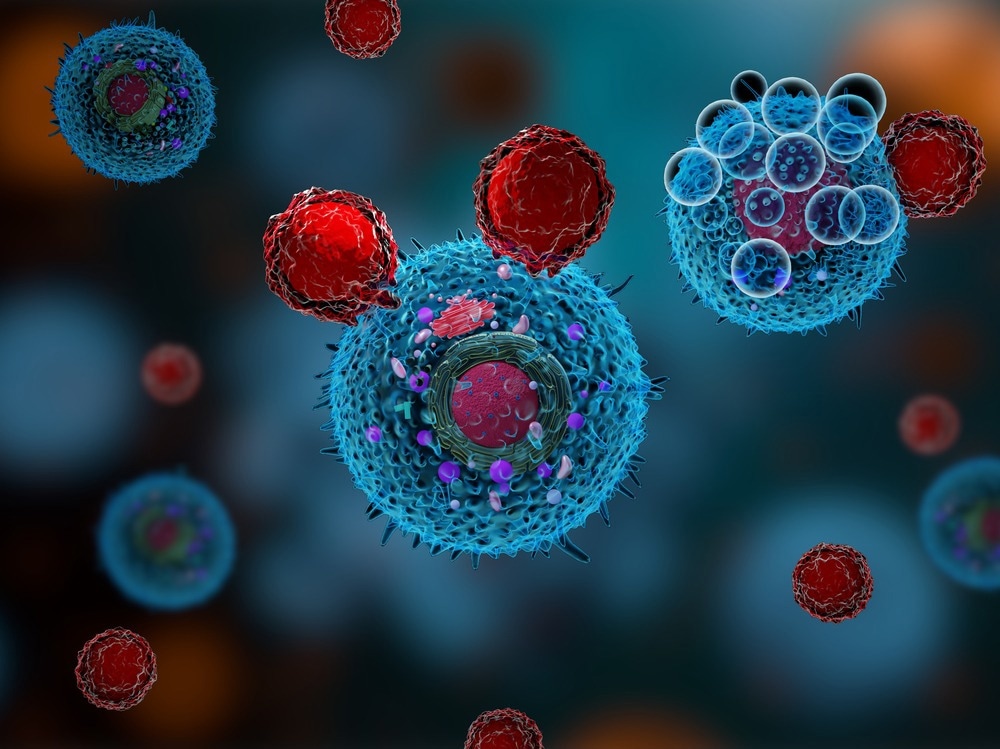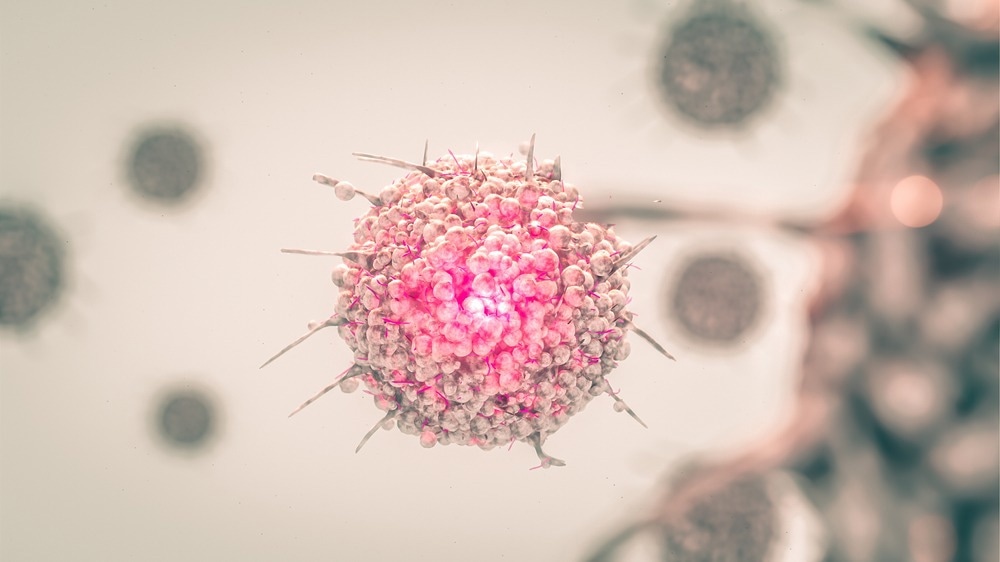Immunotherapy refers to therapies targeted to the immune system with the aim of stimulation or suppression. The main objective of immunotherapy is to help increase the body’s immune response to pathogens, infectious diseases, and cancer.

Image Credit: Meletios Verras/Shutterstock.com
Background
While immunotherapy can be associated with vaccines for building immune systems to enhance the immune response to foreign bodies, they have also been entrenched in cancer research.
William B. Coley fathered the concept of immunotherapy in the 19th century, an orthopedic surgeon who was the first to investigate the use of the immune system for treating cancer. He noticed operated patients with bone sarcomas would come out of surgery with wound infections, as is in line with the lack of aseptic techniques during that time, and was surprised to also find spontaneous regression of tumors that were unresected.
This led to innovative and somewhat unethical trials that he conducted, injecting a mixture of live and inactivated bacteria, later named Coley’s toxin, into more than a thousand patients. He used bacteria species such as Streptococcus pyogenes and Serratia marcescens with the theory of using the occurrence of sepsis to stimulate a strong immune response, possibly leading to an antitumor effect.
While this method of testing novel therapy ideas on patients is now controversial and unethical, Coley managed to achieve and document the first immunotherapy intervention against cancer. Astonishingly, the results comprised complete remissions of malignancies including but not limited to, sarcoma and lymphoma. However, a lack of understanding of the mechanism behind Coley’s toxin as well as potential risks, caused oncologists to adopt standards of cancer treatment that are more known today, such as surgery and radiotherapy.
Cancer Immunotherapy
Cancer immunotherapy has become a significant pillar within treatment; however, while the objective is to improve the body’s immune response against tumor cells, effective immunotherapies are staggered with complexities and challenges.
This type of immunotherapy can be established through a multitude of avenues, such as antigen-based activation of dendritic cells via the use of a vaccine carrying tumor-associated antigens. This therapeutic technique can lead to dendritic cells that have the potential to differentiate and present the antigens through MHC class I and II molecules, which can further the immune response via CD8+ T cells. The activation of CD8+ T cells ultimately eliminates tumor cells, releasing tumor-associated antigens that would continue the cycle of cancer immunity.
However, while this process sounds simple and effective in theory, the reality of tumor behavior is more complex. Tumor cells are highly adaptable and heterogeneous, with a poorly understood tumor immune microenvironment due to the continual influence of various factors.
The classification of tumors has been cited as a major challenge for cancer immunotherapy researchers as this is required as a premise for treating and predicting patient response. The inability to predict the efficacy of cancer immunotherapy treatments is significant for enhancing patient care.
Currently, many immunotherapy treatments have demonstrated efficacy; however, this has only been found in a select number of cancer types, and within this group, effective treatment was observed in a minority of patients.
This variability in patient response is a critical challenge and does not incite confidence for use as an effective cancer treatment. However, the potential of this innovative therapy is still promising. The growth of cancer research in this area is continuous, with researchers amassing knowledge of what is required to push this innovative treatment to the forefront of clinical practice.

Image Credit: CI Photos/Shutterstock.com
Exploring Solutions
The solutions for these challenges are multifaceted, with the requirements of identifying additional biomarkers as well as cancer pathways that can aid scientists in understanding the mechanism of action of tumor cells against an enhanced immune response.
Another proposed plan can also include targeting multiple cancer mutations and pathways through the use of drug combinations due to single mutation targeting resulting in modest and even ineffective impact on survival.
The inclusion of personalized medicine that aims to individualize cancer treatment specific to a patient can include comprehensive sequencing methods that allow a patient to be examined for mutations. Outlining the mutations found to be the root cause of an individual’s tumorigenesis can lead to patient-specific treatments, ensuring these mutated tumor pathways are addressed rather than a one-size-fits-all approach.
Additionally, the collaboration of researchers on cancer immunotherapy can lead to innovative solutions such as mathematical modeling. This strategy aims to address the challenges faced by this branch of cancer research by performing analytical, numerical, and parameter sensitivity analyses to predict treatment response.
Future Outlook
Cancer immunotherapy holds promise for a more targeted patient-based approach to cancer therapeutics. However, while the results of this type of therapy demonstrate potential in theory, the clinical results have not been as significant due to the complexities of tumor variability.
Addressing the heterogeneity of tumors can lead to higher efficacy in immunotherapy treatments, resulting in clinical benefits that prioritize the patient through effective treatment plans and improved prognoses. With further research and trials, the potential of this branch of cancer therapeutics has the ability to revolutionize the future of medicine.
Continue Reading: Investigating the Role of Immunotherapy in Cancer
Sources:
- Esfahani, K., Roudaia, L., Buhlaiga, N., Del Rincon, S., Papneja, N. and Miller, W., 2020. A Review of Cancer Immunotherapy: From the Past, to the Present, to the Future. Current Oncology, 27(12), pp.87-97. Available at: 10.3747/co.27.5223
- Konstorum, A., Vella, A., Adler, A. and Laubenbacher, R., 2017. Addressing current challenges in cancer immunotherapy with mathematical and computational modelling. Journal of The Royal Society Interface, 14(131), p.20170150. Available at: 10.1098/rsif.2017.0150
- Medicalxpress.com. 2022. Cancer immunotherapy: The breakthroughs so far and the challenges still ahead. [online] Available at: <https://medicalxpress.com/news/2021-09-cancer-immunotherapy-breakthroughs.html> [Accessed 21 April 2022].
- Mediratta, K., El-Sahli, S., D’Costa, V. and Wang, L., 2020. Current Progresses and Challenges of Immunotherapy in Triple-Negative Breast Cancer. Cancers, 12(12), p.3529. Available at: 10.3390/cancers12123529
- National Cancer Institute. 2022. NCI Dictionary of Cancer Terms. [online] Available at: <https://www.cancer.gov/publications/dictionaries/cancer-terms/def/immunotherapy> [Accessed 21 April 2022]. Available at: Definition of immunotherapy - NCI Dictionary of Cancer Terms - National Cancer Institute
- Ventola C. L. (2017). Cancer Immunotherapy, Part 3: Challenges and Future Trends. P & T : a peer-reviewed journal for formulary management, 42(8), 514–521. Available from: Cancer Immunotherapy, Part 3: Challenges and Future Trends - PMC (nih.gov)
Further Reading
Last Updated: May 16, 2023